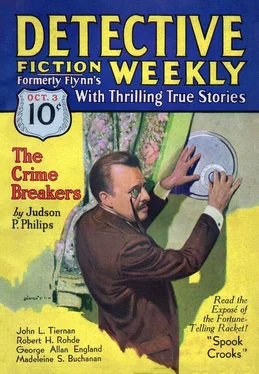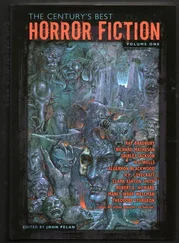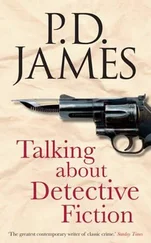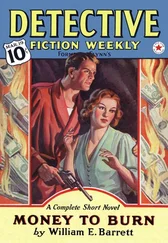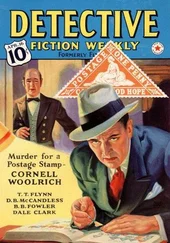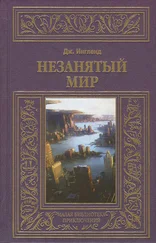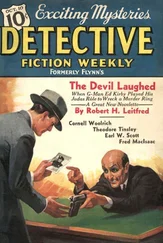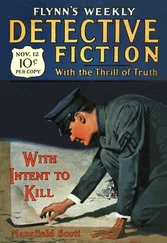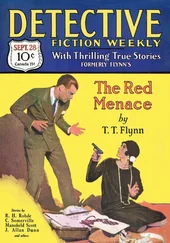Джордж Энгланд - Detective Fiction Weekly. Vol. 62, No. 2, October 3, 1931
Здесь есть возможность читать онлайн «Джордж Энгланд - Detective Fiction Weekly. Vol. 62, No. 2, October 3, 1931» весь текст электронной книги совершенно бесплатно (целиком полную версию без сокращений). В некоторых случаях можно слушать аудио, скачать через торрент в формате fb2 и присутствует краткое содержание. Город: New York, Год выпуска: 1931, Издательство: The Red Star News Company, Жанр: Детектив, на английском языке. Описание произведения, (предисловие) а так же отзывы посетителей доступны на портале библиотеки ЛибКат.
- Название:Detective Fiction Weekly. Vol. 62, No. 2, October 3, 1931
- Автор:
- Издательство:The Red Star News Company
- Жанр:
- Год:1931
- Город:New York
- ISBN:нет данных
- Рейтинг книги:3 / 5. Голосов: 1
-
Избранное:Добавить в избранное
- Отзывы:
-
Ваша оценка:
- 60
- 1
- 2
- 3
- 4
- 5
Detective Fiction Weekly. Vol. 62, No. 2, October 3, 1931: краткое содержание, описание и аннотация
Предлагаем к чтению аннотацию, описание, краткое содержание или предисловие (зависит от того, что написал сам автор книги «Detective Fiction Weekly. Vol. 62, No. 2, October 3, 1931»). Если вы не нашли необходимую информацию о книге — напишите в комментариях, мы постараемся отыскать её.
Detective Fiction Weekly. Vol. 62, No. 2, October 3, 1931 — читать онлайн бесплатно полную книгу (весь текст) целиком
Ниже представлен текст книги, разбитый по страницам. Система сохранения места последней прочитанной страницы, позволяет с удобством читать онлайн бесплатно книгу «Detective Fiction Weekly. Vol. 62, No. 2, October 3, 1931», без необходимости каждый раз заново искать на чём Вы остановились. Поставьте закладку, и сможете в любой момент перейти на страницу, на которой закончили чтение.
Интервал:
Закладка:
Detective Fiction Weekly. Vol. 62, No. 2, October 3, 1931

Crime Breakers
by Judson P. Philips

Mr. Hewes Wasn’t Grasping, but He Figured Gems Worth $450,000 to a Maharajah Might Be Valuable to Him Also
Chapter I
The Release of Jim Garth
The warden looked with an undisguised expression of curiosity in his eyes at the young man who sat in the chair opposite him. It was not often that he had men of the upper classes, men who belonged definitely under the classification of gentlemen, either incoming or outgoing. He had seen and talked to this young man just a year ago when he had first come into the prison to serve a sentence for embezzlement: he had encountered him only once or twice during that year. To-day he was signing the papers which would release him.
Prison leaves its mark on most men, but it does not as a rule make such a startling change in a man as it had in this instance. Jim Garth had come into prison ruddy, tanned from an athletic life, a clear, humorous light in his eyes. His hair had been black and wavy, and worn rather long. His face had been unlined and carefree.
The man who sat opposite the warden was so changed it took an effort of memory for the latter to recall his first impressions. Jim Garth’s eyes were somber and brooding. His dark brows were drawn together and deep lines had formed in his forehead. His lips were tightly dosed with a bitter little quirk in the corners. His hair was close-cropped and salted with a sprinkling of gray. But the somber eyes met the warden’s steadily, unwaveringly.
“Well, Mr. Garth,” said the warden cheerfully, “I am as glad to release you to-day as you are to be released, I’m sure.”
“Thank you,” said Garth. His tone was unemotional.
“It isn’t often that we have a man of your caliber in here, Garth, and I have tried to make it as easy for you as possible.”
Garth’s head went back and he laughed shortly, bitterly. “I’m grateful for your thoughtfulness, warden. I’m afraid there isn’t much any man can do to make a stay in jail pleasant.”
The warden passed a box of cigarettes and Garth accepted one and lit it from the match the warden held. “I have always believed your story, Garth,” continued the warden. “I think you held the bag for the men who were really guilty. I think if you hadn’t been an honest man you would never have served this term.”
“I am sure,” said Garth, ironically, “that is a great consolation.”
“You mustn’t be bitter, Mr. Garth. The thing is passed and over now.”
Garth gave the warden a sharp look. “Passed and over, eh? Do you honestly think that, warden? Because if you do you are less worldly than I should have thought. Do you think I can ever go back to the friends who knew me or move in the same strata of society? Do you think I will ever be able to shake the stigma of having been a jail-bird? Do you think any one in the business world will ever give me a job when my name has been plastered over every newspaper in the country as the guilty seller of fraudulent oil stocks? My dear man, everything that ever meant anything at all to me is shut away forever!”
“But you are a wealthy man, Mr. Garth. You will be able to live where you wish and how you wish. The possession of wealth makes it easy for people to forget the past.”
Garth studied the ends of his fingers. “Every cent I ever had or am likely to have, warden, went into making good to those people who were caught in the trap I unwittingly set for them. No one lost by that oil deal — except myself. I have lost everything — money, position, friends.”
“You are young, Mr. Garth. You can make a fresh start.” The warden knew he was just talking clap-trap phrases. He knew that the scar on this man’s soul was too deep to be healed by words.
Garth inhaled deeply on his cigarette and then crushed it out in an ash tray on the warden’s desk.
“You forget, warden, that I was a prominent person. People all over the world read the story of my disgrace. Wherever I turn it will be remembered. No, warden, there is just one thing in life left for me.” The warden shifted uneasily in his chair, for he guessed what was coming. Garth continued: “There is just one thing left for me, warden, and that is to square accounts with the man who was responsible for sending me here. When I have done that, nothing else will matter.”
“Revenge,” said the warden, mechanically, “is never as sweet as most people think it will be.”
Garth laughed, and the sound of his laughter was not pleasant. “I want to turn the screws on him as he turned them on me, warden. I want to trap him as he trapped me. I want to see him suffer as I have suffered — over a long period of time. I want him to know what it is to sit hour after hour in a two-by-four cell with nothing but bitterness in his heart. I want him to know what torture it has been for me... here.” Garth’s voice had risen in passionate anger.
The warden rose. “Remember, Mr. Garth,” he said, gravely, “that your thirst for revenge may result only in bringing you back here. You have a black mark against you on the books that will count against you in life.”
Garth also rose. “I am painfully aware of that, warden, but I promise you that I will gladly spend the rest of my life here if I can just balance my account. That’s all I ask for, warden.”
“I wish you luck, Mr. Garth. I hope that when you are free you will lose some of your bitterness. It will never bring you happiness.”
“Happiness!” The departing prisoner laughed. “Happiness! Your sense of humor, warden, is nothing short of extraordinary.”
Chapter II
The $450,000 Plot
It was a restaurant which specialized in food, an extraordinary thing in this day of the speakeasy. It was one of the last places in the city where the gourmet could still satisfy his delicate tastes, and because the American palate has been paralyzed by bad gin it was patronized only by a few customers who still ate food for the joy of eating and sipped rare wines for their flavor rather than for their alcoholic effect.
The fat man at the corner table was obviously having a delightful time. He had ordered with care and was eating with relish. The white linen napkin was tucked into a middle waistcoat button, but despite this precaution there was a fresh stain on the expensive necktie he wore — a fresh stain to join the others which were already old friends. His clothes were wrinkled and unbrushed, yet if one knew about cloth it was apparent that this suit had come from one of the best tailors. Now and then the fat man removed his gold-rimmed spectacles to wipe away the mist which befogged them as he leaned over the steaming casserole of quail, cooked in a ravishing wine sauce. He seemed entirely oblivious of the other two men who sat at an adjoining table, yet these two men were attracting curious glances from the other patrons. Martin Hewes had no curiosity, at the moment, except about the next mouthful of quail.
It was not remarkable that the other two men attracted attention. One of them wore a turban, and had the dark skin and aquiline features of the East Indian. Glittering black eyes were fixed intently on the man who sat opposite him, eyes that seemed to be boring through the strange, mask-like face of his companion. The other man, an Englishman, was immaculately clad in striped gray trousers, black coat, wing collar, bow tie, spats. The one outstanding thing about his appearance, however, was that in his right eye he wore a monocle of opaque green glass. Close scrutiny would have shown the observer that this was not altogether an affectation, for behind that green glass was no eye at all. Some accident had left nothing but a seared socket which the man cleverly hid by the wearing of a monocle. He had thin, bloodless lips, which seemed to be twisted into a perpetual ironic smile. The one good eye, pale green in color, was cold and heartless as splintered ice. He toyed idly with the caviar which the waiter had brought him.
Читать дальшеИнтервал:
Закладка:
Похожие книги на «Detective Fiction Weekly. Vol. 62, No. 2, October 3, 1931»
Представляем Вашему вниманию похожие книги на «Detective Fiction Weekly. Vol. 62, No. 2, October 3, 1931» списком для выбора. Мы отобрали схожую по названию и смыслу литературу в надежде предоставить читателям больше вариантов отыскать новые, интересные, ещё непрочитанные произведения.
Обсуждение, отзывы о книге «Detective Fiction Weekly. Vol. 62, No. 2, October 3, 1931» и просто собственные мнения читателей. Оставьте ваши комментарии, напишите, что Вы думаете о произведении, его смысле или главных героях. Укажите что конкретно понравилось, а что нет, и почему Вы так считаете.
